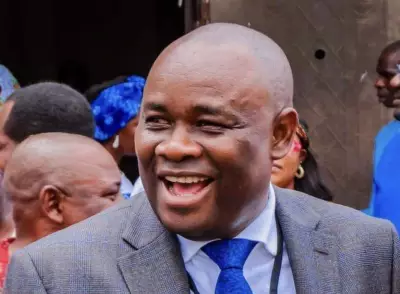
In a seismic judgment that has sent shockwaves through Nigeria's political circles, the Federal High Court sitting in Sokoto has delivered a landmark ruling that cost a Zamfara lawmaker his parliamentary seat.
Court Axes Defecting Lawmaker
Hon. Kabiru Maipalace, who previously represented the Gusau/Tsafe Federal Constituency of Zamfara State, has been officially sacked from the House of Representatives. The court found his defection from the Peoples Democratic Party (PDP) to the ruling All Progressives Congress (APC) to be unconstitutional and illegal.
The Legal Battle Unfolds
The case was brought before Justice Ahmed G. Mahmud by concerned constituents and PDP members who challenged the legality of Maipalace's party switch. The plaintiffs argued that the lawmaker had no valid grounds to abandon the party that sponsored his election victory.
In his decisive ruling, Justice Mahmud declared that the defection violated constitutional provisions and the Electoral Act. The court emphasized that elected officials cannot arbitrarily change political parties without facing consequences for such actions.
Immediate Consequences
The court ordered the Independent National Electoral Commission (INEC) to immediately withdraw the Certificate of Return issued to Maipalace and conduct a fresh election within 90 days to fill the vacant seat. This ruling effectively ends Maipalace's tenure in the Green Chambers.
Broader Implications for Nigerian Politics
This judgment represents a significant victory for political stability and party discipline in Nigeria's democracy. Legal experts are hailing it as a crucial precedent that could deter the rampant party-hopping that has characterized Nigerian politics in recent years.
The ruling reinforces the principle that elected officials are bound to the parties that sponsored their elections, unless there are exceptional circumstances such as a division within their original party.
Political Reactions
The PDP has welcomed the judgment as a triumph for democracy and the rule of law. Party officials described it as a warning to other elected officials considering similar defections.
Meanwhile, political analysts suggest this ruling could trigger similar legal challenges against other defecting lawmakers across the country, potentially reshaping the political landscape as the 2027 elections approach.
This landmark decision underscores the judiciary's growing role in enforcing political accountability and maintaining the integrity of Nigeria's democratic processes.






